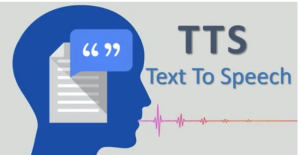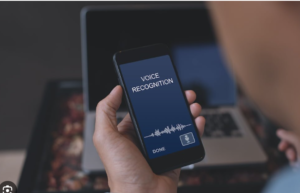In our ongoing exploration of assistive technologies, we have witnessed the remarkable advancements that have revolutionized accessibility for individuals with disabilities. Today, we shift our focus to cognitive assistive technologies, an innovative field that aims to enhance digital accessibility for individuals with cognitive impairments. These technologies play a crucial role in empowering individuals to navigate and engage with digital content effectively, fostering inclusivity and equal opportunities. Join us as we delve into the world of cognitive assistive technologies and discover their transformative impact on digital accessibility.
Understanding Cognitive Assistive Technologies
Cognitive assistive technologies are designed to support individuals with cognitive impairments in comprehending, organizing, and processing information. These innovative tools bridge the accessibility gap by addressing challenges related to memory, attention, executive functions, and comprehension. Let’s explore some key cognitive assistive technologies that are driving digital accessibility forward:
Text-to-Speech (TTS) Technology

TTS technology converts written text into spoken words, allowing individuals with reading difficulties or cognitive impairments to access and comprehend digital content effectively. By hearing the text read aloud, users can focus on the content without the additional cognitive load of decoding written words. TTS tools are commonly integrated into devices, operating systems, and web browsers, making it easier for individuals to customize their digital experience according to their needs.
Voice Recognition and Dictation

Voice recognition technology enables individuals to control digital interfaces and devices using voice commands. This technology is particularly beneficial for individuals with cognitive impairments, allowing them to interact with digital systems hands-free. Additionally, dictation software enables users to speak naturally, converting their speech into written text. This feature supports individuals with writing difficulties or those who find it challenging to organize their thoughts in written form, enhancing their ability to express themselves in the digital realm.
Cognitive Support Applications

Cognitive support applications encompass a wide range of software and mobile apps designed to assist individuals with cognitive impairments in various tasks. These applications often incorporate features such as visual schedules, reminders, timers, task management tools, and organizational aids. They provide structure, visual cues, and prompts to help users with planning, time management, and memory-related challenges. By utilizing these applications, individuals can enhance their productivity, independence, and overall cognitive functioning.
Simplified User Interfaces
Simplified user interfaces are designed to reduce complexity and cognitive load by presenting information in a clear, concise, and intuitive manner. These interfaces typically feature streamlined layouts, limited distractions, and simplified navigation options. By eliminating unnecessary elements and focusing on essential content, individuals with cognitive impairments can more easily navigate and comprehend digital interfaces, making their online experiences more accessible and less overwhelming.
Social Skills Training Software
Social skills training software assists individuals with cognitive impairments in developing and improving their social interactions and communication skills. These tools provide interactive scenarios, virtual environments, and guided instruction to support users in understanding social cues, practicing appropriate responses, and fostering effective communication. By leveraging these software applications, individuals can gain confidence in social settings and build meaningful connections both online and offline.
Cognitive assistive technologies have revolutionized digital accessibility, empowering individuals with cognitive impairments to overcome challenges and actively participate in the digital world. Through text-to-speech technology, voice recognition, cognitive support applications, simplified user interfaces, and social skills training software, these innovative tools are transforming the way individuals with cognitive impairments interact with digital content. As technology continues to advance, it is crucial for developers, designers, and content creators to prioritize cognitive accessibility, ensuring that digital platforms are optimized for cognitive assistive technologies. Together, we can create a more inclusive and accommodating digital environment that fosters equal access and opportunities for all.
What is next?
Remember, assistive technologies are not just tools; they are enablers of dreams and agents of change. Stay tuned for more enlightening insights!
Join us in our next post, where we will continue this enlightening journey into the realm of assistive technologies. We will uncover more types, discuss real-life success stories, and examine the future prospects for these life-changing innovations.
For more information on why accessibility is important in general, you can check out my previous blog post here.
For further information on how to make your product accessible to your audience, contact our experienced design experts, check out our Accessibility IQ for your website, download our guide Digitally Accessible Experiences: Why It Matters and How to Create Them, read more from our UX for Accessible Design series.


Such good information and very useful. I really enjoyed this article and also interested, Thanks for sharing the information with us.
Really useful.
very well explained wonderful blog
Thanks for such a useful article.